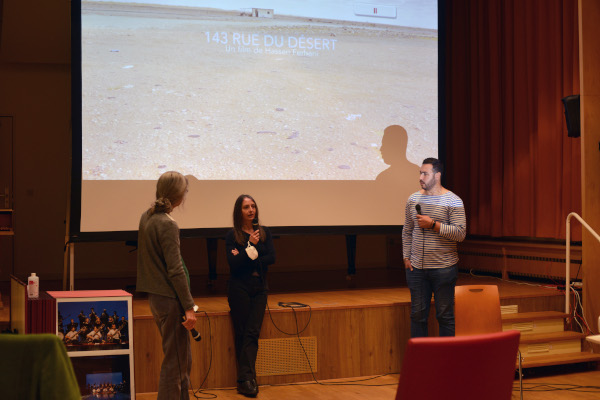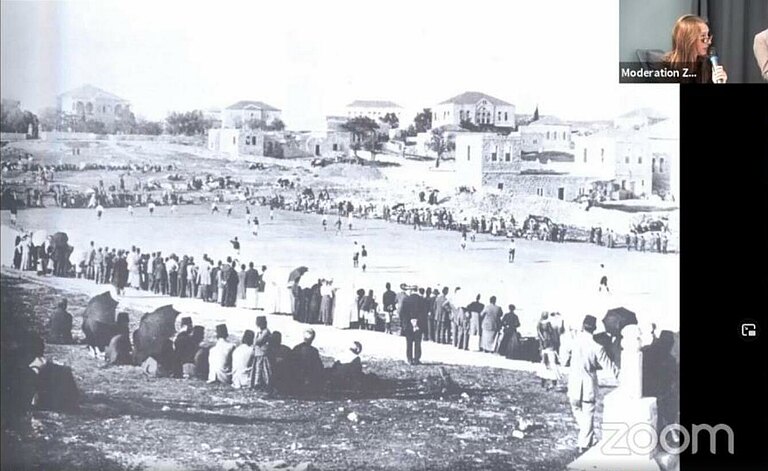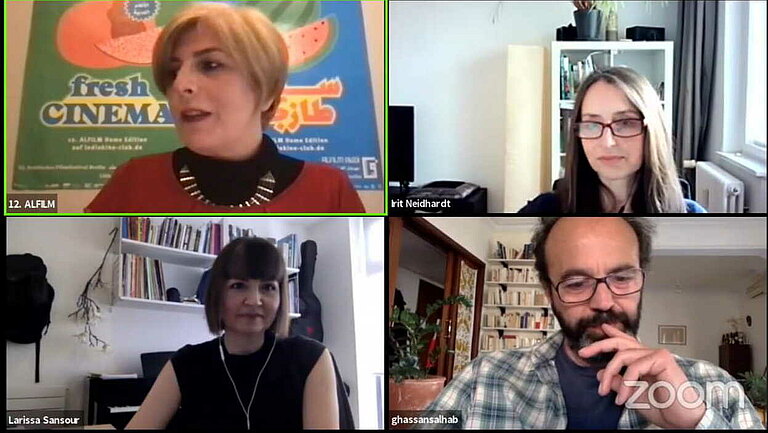Tutorial
Cinema as Crime? - Human Rights Films
Filmuniversity Potsdam, November 2021
"Human rights films are films that reflect current human rights abuses or show visions and aspirations to help those who suffer," Amnesty International writes on its website. Human rights films usually focus on communities that do not have an own access to the means of production; it is the directors who give people a voice. There is almost always a power imbalance between the film-makers and their subjects, regardless of whether they produce in their own country or abroad. No matter how good the intentions of the filmmakers, it happens again and again that the people who should be supported use all the means at their disposal to resist the completed films.
Using one film example from and one about the Arab world, we will take a closer look at the concept and functioning of human rights films. Who are they made for? Whom do they serve and what do they conceal? How is it that human rights films continue to be attacked by those whose needs they are intended to serve? The aim of the seminar is to become more aware of the complexity of human rights films.
Film Talk
Sunday, 17. October, 18:00 doors open, 18:30 film screening
Concert hall of Musikschule Fanny Hensel, Turmstr. 75 (4. OG), Berlin
in the program of Kino für Moabit
143 RUE DU DÉSERT (143 Sahara Street)
Algeria/France/Qatar 2019, 100 min, with English ST
directed by Hassen Ferhani. With Malika, Chawki Amari, Samir Elhakim
Guests: Ilyes Senhadji, Social Scientist & Irit Neidhardt, Film Distribitor, Curator, Author; Moderation: Dagmar Kamlah, Film Curator
Jury
In June 2021 Irit Neidhardt was together with Marion Stalens, Fathi Kharat, Fanny Aubert Malaurie, and Hamid Benamara in the documentary jury of the International Mediterranean Film Festivals Tétouan (Morocco).
Panel
22nd May 2021 at 2pm (German time) at Forum Factory Berlin or online
In the framework of the Zait wa Zaatar Festival Berlin: Orientalizing the Holy Land or How did the Gaze of Western Christian Travelers contribute to shaping today’s image of Palestine in Europe? (in German)
Christian European men travelled to the Middle East in search of the land as described in the book holy to them. Some prominent travellers, most notably Gustaf Dalman, built up whole archives, now mostly housed by theological faculties in universities, amongst them Berlin and Greifswald. What were their conceptions at the time, the beginning of photography done by travellers (app 1900-1913), how did the images of Arab peoples, indigenous Palestinians contribute to the way they are still portrayed today? And how does this shape the way Europeans see, judge and act on the disputed land that once was known as Palestine?
Panelists: Dr. Bashar Shammout, Irit Neidhardt; Moderator: Cora Jostings
Moderation
April the 25th at 17.00 CET
In the framework of the 12th ALFILM Home Edition: Genres Revisited: Visionary Imagery and Fragmented Narratives in Contemporary Arab cinema
Genre films are generally associated with mainstream cinema. Through their repetitive form and their often unrealistic content, their aim is usually to entertain an audience. But what happens when an Author decides to appropriate a particular genre, to use genre conventions to develop his/her own visual language, and to make taboo topics visible on the screen? The aim of this roundtable is to discuss the relationship of contemporary Arab film authors with genre films and the way genre conventions serve their discourse on historical, political, cultural and social questions.
Panelists: Ghassan Salhab, director THE LAST MAN and Larissa Sansour, director IN VITRO, Moderation: Irit Neidhardt
Paper
at the international workshop Archival Methods and Global Palestine in the 1960s and 1970s on 15. and 16.4.2021 at Roskilde University (DK) the paper "The PLO’s German Cinema Relations and their Archival Traces".


